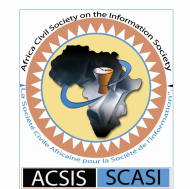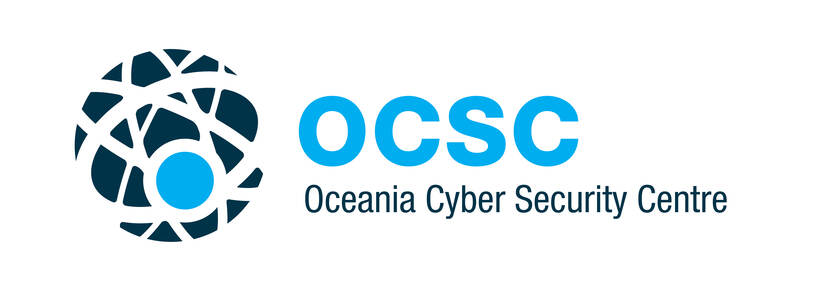Cyber Incident Management and Critical Infrastructure Protection
Cyber Incident Management & Critical Infrastructure Protection is one of the five thematic streams of the GFCE’s work, as codified in the GFCE’s Delhi Communique.
Within this theme, the GFCE facilitates dialogue, collaboration and information sharing on cyber capacity building as it relates to the topics of: national computer security incident response, cyber security exercises, and critical information infrastructure protection.
Working Group B on Cyber Incident Management & Critical Infrastructure Protection
The GFCE’s multistakeholder community comes together to share, shape and form knowledge on specific issues related to Cyber Incident Management and Critical Infrastructure Protection in Working Group B to:
-
- Develop a national incident response system to prevent, detect, deter, respond to and recover from cyber incidents.
-
- Develop, test and exercise emergency response plans and procedures, domestically and internationally, to raise awareness and ensure that government and non-government collaborators can build trust, prepare for, coordinate effectively and handle crises.
-
- Identify and protect national critical information infrastructure sectors.
Tools and publications
Introduction to Tabletop Exercises: a Practical Guidebook for Organizations
This publication seeks to provide guidance in designing, developing and evaluating how and when to conduct a tabletop exercise as a tool to improve an organization’s cyber security policymaking and
Cyber Incident Management (CIM) Cybil Portal Resources Guide
The Cyber Incident Management (CIM) Cybil Portal Resources Guide is an initiative of the GFCE Working Group B CIM Task Force. The objective of this guide is to provide an
Towards Identifying Critical National Infrastructures in the National Cybersecurity Strategy Process
This white paper builds upon existing CNI/CII work within the GFCE and proposes some practical considerations and measures for how countries can develop approaches for identifying CNI/CII as part of
Cyber Incident Management in Low-Income Countries
This report discusses the findings and recommendations of the “Cyber Incident Management in Low-Income Countries” project, funded by Global Affairs Canada. The project aims to create a tailorable guide for
The Global CSIRT Maturity Framework
The Global CSIRT Maturity Framework is intended to contribute to the enhancement of global cyber incident management capacity, with a focus on national CSIRTs. Cyber incidents and developments are inherently
Lessons Learned: Cyber Incident Management Capacity Building
Capacity builders focus on their work in a number of different types of initiatives, from short-term maturity and capability assessments and technical training, to providing long-term engagement and advice. These
CIIP Capacity Framework
An infographic relating to the CIIP Capacity Framework.
GFCE Global Good Practices – National Computer Security Incident Response Teams (CSIRTs)
Even the best cyber security posture and practices cannot guarantee that key organisations and information infrastructures within a nation will not be vulnerable to malware, software failures, human errors, and
GFCE Global Good Practices: Critical Information Infrastructure Protection (CIIP)
The unprecedented uptake of ICT worldwide leads to a growing dependency of economic sectors, public institutions and societies as a whole. Multiple recent outbreaks of hostage-taking software (ransomware) have shown
Companion Document to the GFCE-MERIDIAN Good Practice Guide on CIIP
The 2016 GFCE-MERIDIAN Good Practice Guide on Critical Information Infrastructure Protection for governmental policy-makers (hereafter: 2016 GPG) outlined that Critical Information Infrastructure Protection (CIIP) is a complex but important topic
The GFCE-MERIDIAN Good Practice Guide on Critical Information Infrastructure Protection for Governmental Policy-Makers
Critical Information Infrastructure Protection (CIIP) is a complex but important topic for nations. Nations at large critically depend on Critical Infrastructure (CI) services such as energy supply, telecommunications, financial systems,
Establish a Clearinghouse for Gathering Systemic Risk Conditions Data in Global Networks
Internet networks are replete with systemic vulnerabilities. CERTs and other trusted operators require reliable information about their network’s health over time. Various organisations have set up systems to scan networks
Produce and Present Trusted Metrics about Systemic Risk Conditions
A statistics platform, featuring metrics and data visualisation, allows for the measurement of key indicators of malicious activity and risk conditions, and enables analytical insight about patterns, priorities, and trends
CSIRT Maturity Kit
The purpose of this CSIRT Maturity Kit is to help emerging and existing Computer Security Response Teams (CSIRTs) to increase their maturity level. This is achieved by offering a set
Participating members and partners
Projects
Pilot GFCE Global Cyber Capacity Building (CCB) Research Agenda
Creating coordination and targeted training of cybersecurity capacity in Africa
Study on ‘Advancing Cyber Security with Africa’
Initiatives
CyberGreen
The CyberGreen initiative is a global non-profit and collaborative organization conducting activities focused on helping to improve the health of the global Cyber Ecosystem. CyberGreen will achieve this by providing...
The Cyber Surakshit Bharat Initiative
Countries today face new and emerging challenges in cyber security that range from a constantly shifting threat landscape to managing multiple platforms and devices in the environment. The modern threat...
CSIRT Maturity Initiative
The objective of the Cyber Security CSIRT Maturity Initiative is to provide a platform to GFCE members to help emerging and existing CSIRTS to increase their maturity level. The expertise...
Coordinated Vulnerability Disclosure
CVD is a platform to GFCE members to share experiences and lessons learned in cyber security mechanisms for responsible disclosure or coordinated vulnerability disclosure policies and discussions on the broader...
Critical Information Infrastructure Protection Initiative
The GFCE-Meridian initiative aims to support government policy makers with responsibility for Critical Information Infrastructure Protection (CIIP) to understand the implications and consequences of cybersecurity issues and to maintain an...



























































